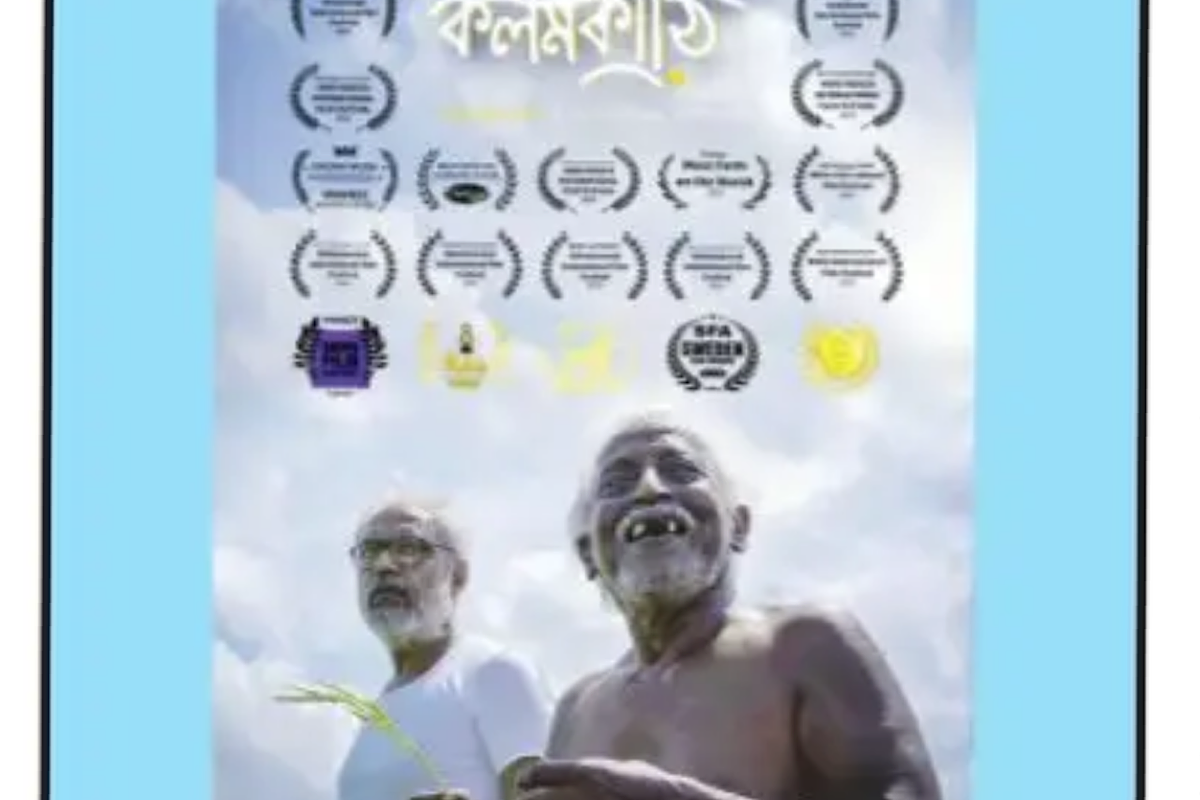The 29th edition of KIFF screened Kalamkathi, a feature film from Bankura that talks about a nearly lost variety of Bengal’s own conventional paddy cultivation in which the use of chemical fertilizer is prohibited. According to the students in Bidhan Chandra Krishi Viswavidyalaya, an agricultural varsity: “This film may lend new ideas in Bengal’s film industry for a better crop of films.”
Kalamkathi is clubbed in ‘film on environment’ section of the KIFF 29 and was screened today. The 80-minute movie is directed by Biplab Das, an irrigation engineer of the state government. He is a resident of Bankura town. The film has already earned praise from Sweden and Turkey.
Advertisement
Das had earlier directed ‘Tandoori’, a short film based on much debated carcass meat scam in Kolkata, which had bagged the best cinematography award from Sweden alongside praise for the best story and outstanding achievement categories from a number of film festivals in Kolkata and Pune. Like Tandoori, the entire film was shot in Bankura and the actors were hired from a drama group of the district town.
Local theatre artists Tapan Chakraborty, Aditi Ghosh Mallik and Joyeeta Banerjee have contributed to the cast. Purbasha Banerjee, a student of classical music, has lent folk notations for the film.
Das said, “I’m quite ambitious that Kalamkathi will be able to win the hearts of the audience in the Kolkata festival as it talks about a paddy variety struggling hard for its existence against the aggressive indulgence by the multinational fertilizer makers in present day cultivation.” The story talks about a village nestled in the remote corner of India, where an aged agricultural scientist has volunteered to revive a nearly forgotten natural farming practice for paddy seeds and using conventional manures.
“Assisted by a small group of young enthusiasts, how his endeavour pushed back the hard barriers of agricultural science while exposing hypocrisy of the modern agroindustries,” Das said. The team of scientists in the film is seen extending their support to the local tribal communities, aiding them in revitalizing their ancestral farming traditions.
The presence of the local land sharks and the dominance of multinational pesticide and fertilizer companies in Kalamkathi cast a dark cloud over the scientist’s noble quest, with constant threats to stop their progress. In the midst of this turmoil, two urban women, an environmentalist and a journalist visit the village and get involved in the crisis. “Amidst odd adversities, armed with the power of unity, will they be able to sustain their noble quest, is a question we put forward before the audience,” Das said.









